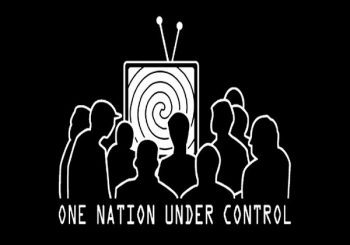Guest Writer for Wake Up World
While you may think that you have no impact on war, acts of terrorism, prejudice or racism, let me assure you, nothing is further from the truth. Every person or citizen of any nation plays an important part in the fostering of love or hate. So how does this work?
Lets take a look at one of the more obvious examples of how nations go to war. It is actually a long and involved process, and first and foremost a battle for your mind.
Warfare 101
Contrary to the image portrayed by the press, wars are not started overnight as a reaction to a single isolated event. Yes, I am aware that history books love to cite the “historic incidents” that sparked wars. The truth, however, is something entirely different. There’s a lot more going on than “one terrible incident.”
Warfare, as taught in WestPoint or any other military academy, is based on the rules and laws of strategy. While the equipment and resources vary from army to army or nation to nation, strategy is a skill of the mind – the ability to look at the resources at hand and how to best utilize them for the highest probability of success. Examples of resources include troops, equipment, vehicles, weather conditions, and terrain, to name a few. Wars are won or lost based on the strategic deployment and availability of resources and types of troops.
Strategy includes such painfully obvious actions as providing winter gear for troops in arctic regions. Sound obvious doesn’t it? Well fortunately for the free world, both Napoleon and Hitler failed to take cold weather gear into account when sending their armies to invade Russia. Their armies literally froze to death and were decimated by the Russian winter. Historians trace both of their downfalls in part to this strategic blunder.
Thus strategy is of the utmost importance. One needs to have all one’s ducks in a row, and to have the correct resources in the right place at the right time.
What is the most valuable asset of any military campaign?
Most people will answer this question with some sort of variation of the same answers: “military might,” “stronger tanks,” “bigger bombs,” “faster planes …” But military textbooks and the rules of strategy proclaim something different.
Public opinion is the primary asset in the military arsenal. There is no single other element quite as vital as this one thing, public opinion, in waging a successful war.
Without at least the tacit approval of a population no war succeeds.
Ancient military commanders knew this. One of the oldest books on strategy written roughly 5000 years ago, and probably the most studied book by military commanders throughout the ages, is “The Art of War” by Sun Tzu. This book covers public opinion as the very first point of consideration before engaging in warfare.
Sun Tzu uses the more archaic term for “public opinion:” Moral Law.
“The Moral Law causes the people to be in complete accord with their ruler, so that they will follow him regardless of their lives, undismayed by any danger.”—Sun Tzu, The Art of War
So What Does “Moral Law” Mean?
It means having the people, or the civilians, on your side. It means convincing the population that there is a cause for war – that it is “just” or justified, that one is getting rid of something bad, that one is eradicating evil …. One has to convince people that some group is “different” “inhuman”, or “a threat to the civilized world”.
As long as the people are of the opinion that you are getting rid of something sufficiently undesirable you can start a war. As they will give you their support, after all you are doing something “good” by destroying something “evil”. Without the support or approval of the people, war cannot be declared.
So the real battle ground for any war, no matter where it is fought, starts in the minds of the people.
Confrontation on the battlefield is factually one of the latter stages of war, it is only started once the fight for public approval has been won. The conditioning of people to accept the war would have started months, if not years or decades, earlier.
Media the Strategic Partner for War
Few wars would really get off the ground, and many more would have been avoided completely, if we still had a free press which was not tied to corporate or special interests.
The average sane and well-balanced individual, like yourself and others you know, abhors the idea of dropping bombs on people. We detest the idea of women, men or children being ripped to shreds with explosive ordinances.
There is almost no one that we would wish this fate upon. Witness the fact that the death penalty has been largely abolished in virtually every civilized nation. So there must be something very fundamentally wrong with causing the death of another, if the vast majority of people consider it unjustified for those with proven guilt of heinous crimes.
Yet a declaration of war is tantamount to the imposition of the death penalty and untold suffering upon a multitude of individuals. Many of them are women and children guilty of no wrong doings what-so-ever – real or imagined.
To overcome our disapproval of mayhem and destruction, the media is set in motion. It’s purpose? Gaining your approval for indiscriminate killing of others because they are “evil”. Something you would under no other circumstances agree with.
How the Media Gains Approval From the Population
To be frank, this is not easy. If it were not such a sordid task, one could almost admire the hard work, dedication, and effort it takes to make right into wrong, and wrong into right, in the public mind. It takes a consistent and long-term dedicated campaign to establish prejudice where there was none. And even where there is prejudice, it takes years for the media to turn even this into a tacit approval of war.
After all, you or I may not like our neighbors, but it would take more than that to get us to condone murdering them or bombing their apartments so that we could “feel secure.”
The keys to it all are:
- Gradients
- Repetition of message
- Consistent assignment of blame to a group or segment of the population as a whole.
Early this century, Joseph Goebels, Minister of Propaganda of Nazi Germany, made excessive use of this technique in order to set in motion what is now referred to in retrospect as “The Holocaust.”
In his own words:
“It would not be impossible to prove with sufficient repetition and a psychological understanding of the people concerned that a square is in fact a circle. They are mere words, and words can be molded until they clothe ideas and disguise.” ? Joseph Goebbels
Sufficient repetition and an understanding of the people concerned.
Well, Goebels understood the German population well. And his constant repetition in the press, defaming Jews, allowed Hitler to implement “the final solution.”
So how does the media go about getting your approval or tacit consent?
There are innumerable ways, means or methods to gain your consent. They do all however have one thing in common, and will have these key ingredients:
- The story will be about something that is upsetting and disagreeable
- It will lay the blame on a group or a segment of a population
Laying the blame for acts by individuals at the feet of a segment of the population is the key to propaganda. I will give you an example:
During the time period leading up to Nazi Germany, anything bad that happened was blamed on the Jews, as a group, by the German press. One Jew did something bad, so therefore all Jews are bad, was the “logic” this was based on.
Defamation of a group as a whole always has, at its roots, a sinister propaganda activity. History has proven this so many times that it is impossible to list them all.
By laying the blame for any event at a segment of the population or a group as a whole, again and again, time after time, one eventually builds enough “brand recognition” (to use a marketing term) so that when one utters the name of that segment of population there is an instant recognition and association with wrong or evil.
For instance, if I say the word “Muslim,” or “Muslim extremist,” some will think “terrorist” or “suicide bomber.” Why? Well, they have been conditioned by the Press to associate Muslims as a group with bad or barbaric and suicide bombers. This is “successful” propaganda at work.
Similar to the Catholic beliefs, a Muslim cannot enter heaven if he commits suicide or if he kills the innocent. So to refer to a terrorist or suicide bomber as a “Muslim” or a “person of faith” is ridiculous. Yet the media purposely does so and lays the blame on that entire segment of the population so that you will gradually consent to more and more military “intervention” over time. You will get fed up and decide that “something needs to be done about these people.” You will vote for war or those who support it, and you will condone military action against these people. It is practically unavoidable.
This basic message repeated, over and over, day after day, week after week, month after month eventually puts one in a hostile or unfriendly frame of mind towards that group – no matter how hard you resist or try to be rational. History has proven that this strategy works. Goebbels used it with great success on the German population.
Every single genocide in history had this method and operation at its foundation.
The art of propaganda did not die with Nazi Germany, and neither did Goebbels take it to his grave. It has evolved, has been refined, and is a very real weapon the military arsenal – one that is used primarily on one’s own population.
Your mind and opinion is where the battle lines are drawn. Once this has been overcome, war, death and destruction have free reign. They don’t even need your agreement; all they need is your silence.
“Silence is Golden,” they say. Well, it certainly is, to a warmonger’s ears.
This is why people of reason and common sense are constantly vilified as “unpatriotic” or “cowardly” by the media. Nothing is further from the truth. It takes courage to stand up for peace and tolerance in the face of propaganda.
I take my hat off to those that do.
I wrote this article after one of my Charity Projects working with war refugee children and having to witness first hand what war does to children. My wife and I formed Charity United in order address immediate urgent relief for children and then to follow up and provide long term solutions. We pick the projects as funds allow and do what we can to alleviate the situation at hand with the resources at hand. Megan (my wife and the Founder of charity United) is both extremely caring and fearless, I’ve seen her demand cooperation from both the military and police in order to rescue children from human smugglers, while in the middle of trying to clothe and feed over a 1000 children a day during a refugee project.
At Charity United we believe that all children in the world have the right to be cared for and the right to be protected – regardless of their race, nationality, or creed. We also believe that the care and education we give to the children of today will shape the future of our world.”
Also by William Tucker:
About the author:
 William Tucker is the Vice President at D&Y Laboratories, the manufacturer of Double Helix Water. William is passionate about and an advocate natural health and has worked in this industry for over a decade. Through his work he is in constant contact with natural practitioners of all kinds as well as scientists around the world. In his spare time William, together with his wife Megan, operate a small charity helping children around the world.
William Tucker is the Vice President at D&Y Laboratories, the manufacturer of Double Helix Water. William is passionate about and an advocate natural health and has worked in this industry for over a decade. Through his work he is in constant contact with natural practitioners of all kinds as well as scientists around the world. In his spare time William, together with his wife Megan, operate a small charity helping children around the world.
Website: DoubleHelixWater.com

If you've found value in our articles, we invite you to support the release of our brand-new book, "Gratitude Practices for Kids: A Practical Guide for Adults to Instill a Spirit of Appreciation and Positivity in the Next Generation."
"Gratitude Practices for Kids" brings together over 25 innovative and accessible practices designed to enhance gratitude in everyday life. This comprehensive guide is backed by 17 scientific studies, ensuring each concept is grounded in research, underscoring our commitment to nurturing growth, emotional intelligence, and positive interactions between adults and children.
We encourage you to opt for the paperback version to celebrate this new release. Dive into its fresh pages away from digital distractions, allowing you to immerse yourself in the transformative practices it offers.
Over recent years, Wake Up World has faced significant online censorship, which has impacted our financial ability to operate. Moving into book publishing represents a strategic step to secure the ongoing funds needed to continue our mission. By purchasing Gratitude for Kids, you help us keep our content free and accessible to everyone, avoiding needing a paywall. With over 8,500 articles published in the last 13 years, we remain dedicated to keeping our valuable content open to all.








